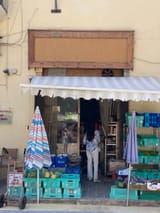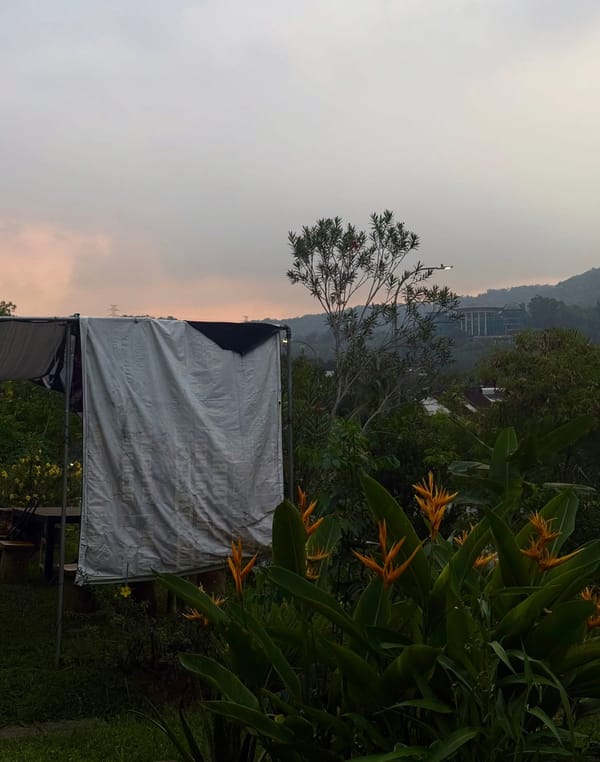Why you should have a personal website
This is your sign to create your own website. Think of it as your very own internet home that you can always return to
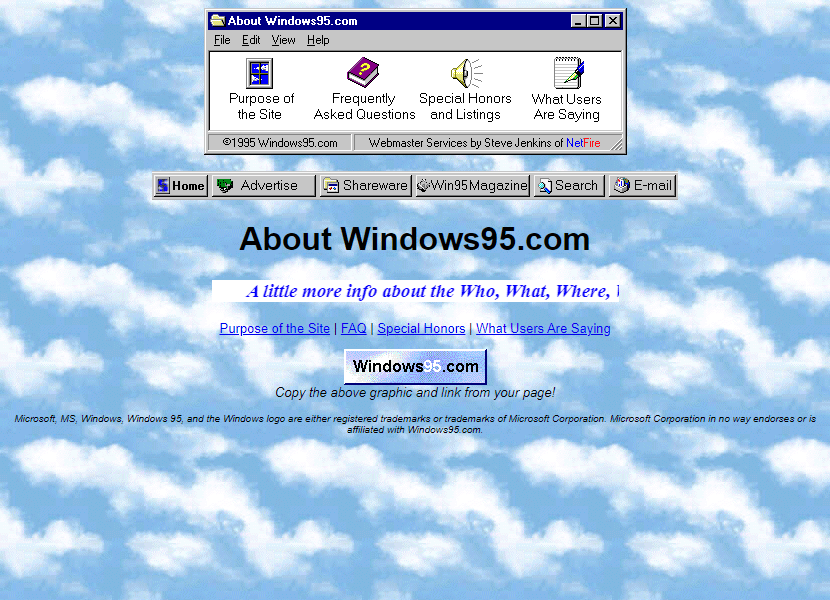
This is your sign to create your own website.
There's something intimate about owning your own website. It's more than establishing your personal brand online and showcasing your work; it's your very internet home, a place you can always come back to. It's a home where you can express yourself and reach more like-minded people than you might imagine.
There was a website builder called Piczo back in the 2000s. That's when I built my first personal website as a child. It felt like a digital scrapbook: I created pages and stuck my favourite things in them. I had pages dedicated to specific anime and other fandoms, decorating them with images and GIFs and sparkles. It gave me freedom to decorate and express myself on my very own website. It may have looked like a "mess" (that chaotic 2000s aesthetic) and lack any formal structure, but it's made entirely by me, for me.
If we're spending so much time on the internet anyway, it's an amazing addition to have our own internet home. We have a physical home with a street address, so it serves the same purpose online with your own internet home (website) with your own URL address (your domain). It's your very own cosy web corner that you can return to anytime.
How a person curates their space reveals a lot about them. In the context of physical homes: If you like minimalism, you're more practical and intentional. If maximalism is your thing, you're a creative and expressive person surrounded by objects that spark joy (or a hoarder, depending on your perspective). The same holds true for internet homes. When I want to learn more about someone, their internet home is I look.
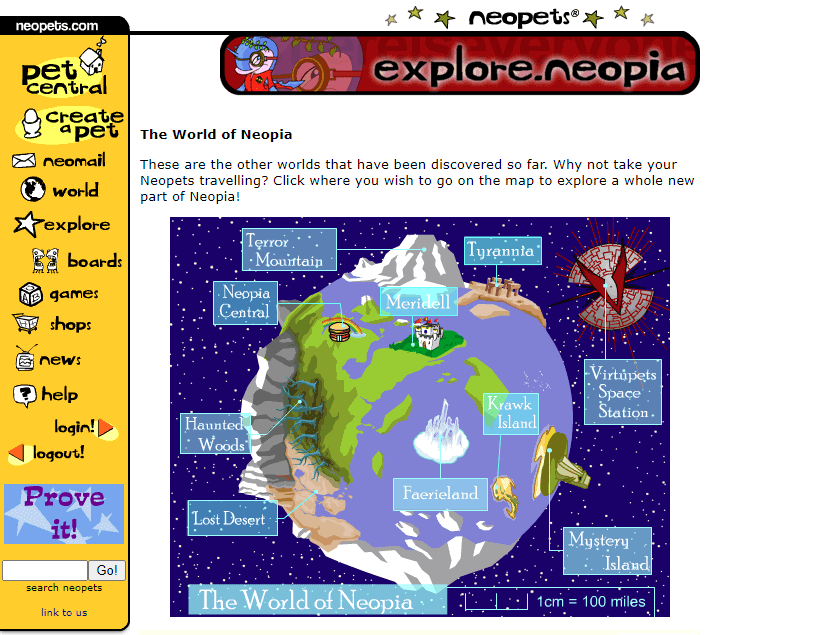
Social media promises a creative outlet similar to owning a website, but it's closer to renting on someone else's platform. Social media confines you to their rules and design constraints, despite being free and convenient. This "renting" model might apply to website builders, but they offer more flexibility in customisation. On social media, everyone is bound to the same format and template. While you can fill it however you like, you don't have the freedom to reshape the container itself or expand it beyond them to your liking.
Social media also feels performative. It's optimised for picture-perfect presentation and rewards those with high engagement. For example, interior design trends on Instagram and Pinterest illustrate this perfectly: the same mid century design with a togo sofa and that one Jean Jullien book. Taste and aesthetic take time to develop, so people tend to follow trends initially. Everyone uses the same moodboard, following an aesthetic template that's overused everywhere. While these designs are popular and perform well, there's almost no sense of originality. Riding the current waves could inform others about your good design sense and earn validation, but it lacks individualism. In the end, you're confined to whatever the algorithm thinks you should create, or what will drive engagement.
While websites offer more creative freedom, there is tension between creative expression and being seen and heard. This is not to say it's one choice over the other. Most of your friends and audience are on social media, so you can have the best of both worlds: share your website on social media for people to visit anytime. Your website becomes your home base, while social media is for new discoveries and conversations.
The barrier to building your own website is lower than ever. It takes little cost and time to create one now with these no-code options, such as Notion, Figma, Mmm, Cargo, and more. There are limitations depending on the website builder (unless you vibe-code or code it yourself), but even the simplest website builder undoubtedly has more capabilities than your average social media platform. Of course, more complicated website may require more time to build it, but you can start small first and incrementally build it up. Something I'll cover in more detail on another blog post.
You live online anyway, so why not make yourself at home?
Here's a curated list of some of my favourite websites. Each one shows what's possible beyond the usual social media template. My internet home is simple, but these homes inspire me to make mine more fun. From interactive experiences to websites that feel like art installations, they prove that beautiful, interesting website still exist on the internet.
My favourite (personal) websites
1) Yamauchi No. 10 - the Nintendo Family Office
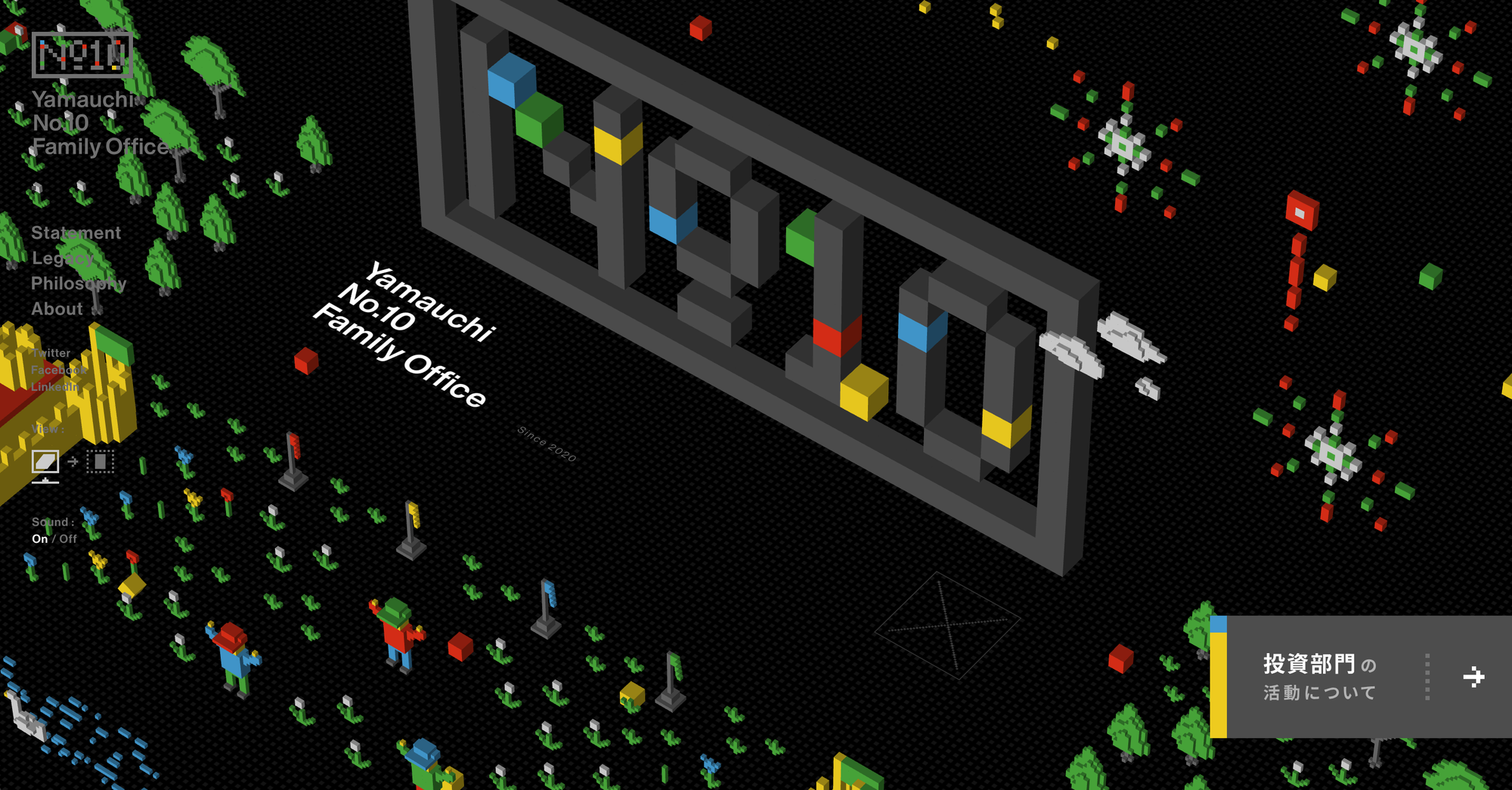
Just look at the website! The entire experience transport you into Nintendo's universe, perfectly captures what a video game company's home should feel like.
2) Chia Amisola
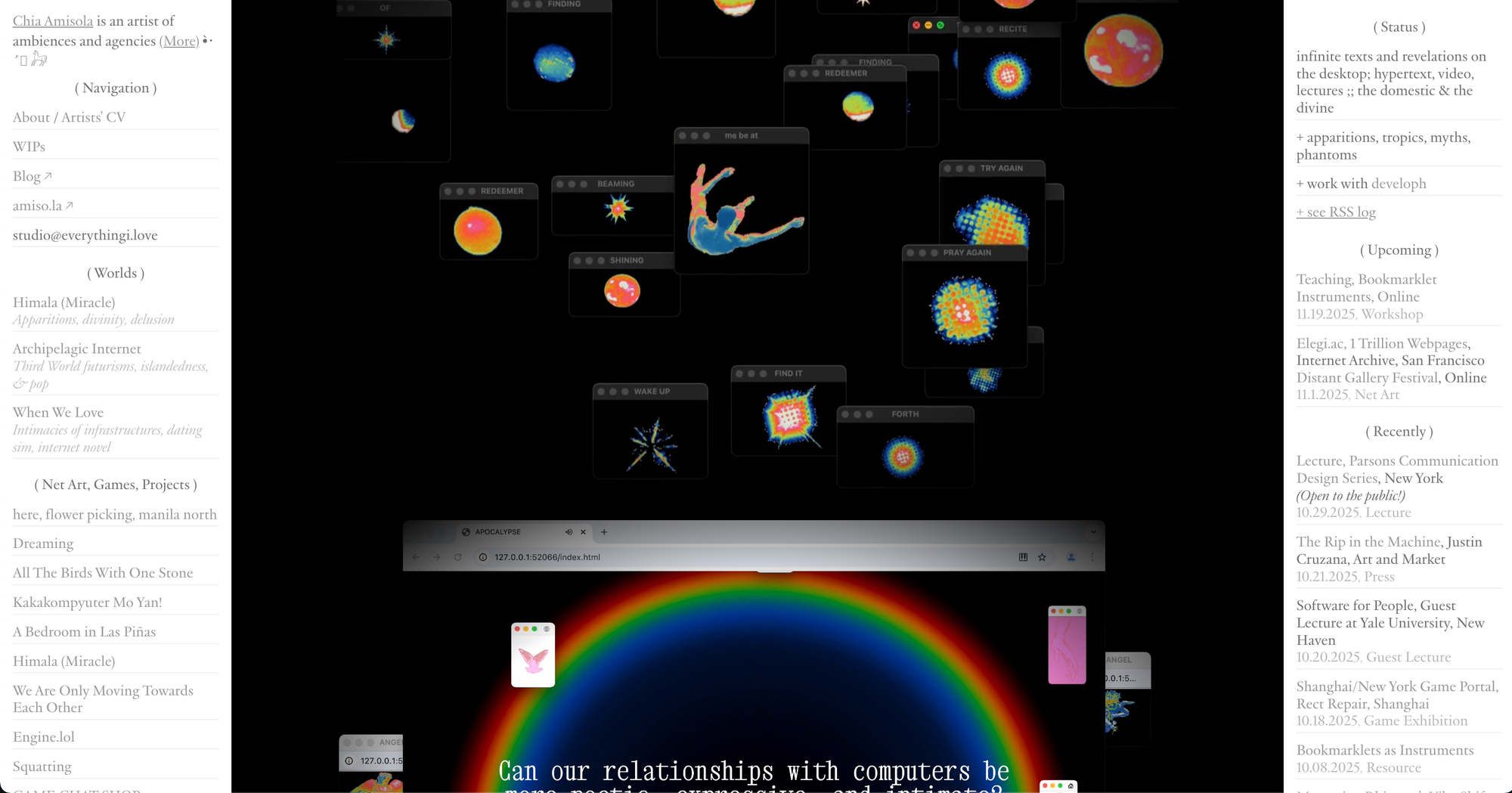
Chia is an internet artist, and her website reflects that. While the sidebars remain fixed, her website functions like an interactive gallery. Admire it like a work of art as you scroll down her page.
3) Kristoffer Tjalve

Interactive websites at its finest! The content on Kristoffer's website is only accessible when water falls below it. Unclog their website by clicking anywhere to flush the water down. Optimisation bros will have a field day with this website.
4) Alana Goyal

Some people live in their Apple notes. Alana took it literally, designing her website exactly like one. Each note contains a different list of her favourite things. You really don't have to overcomplicate your website.
I also love the idea of shaping your own website into a familiar interface. I've definitely seen a few variations similar to this!
5) Yihui Hu

I discovered another yihui, and his website is playful and interactive. Check out his portfolio spread across the page like papers scattered on a table. You can shift through them to find what you're looking for.
